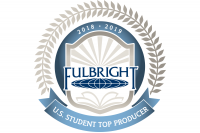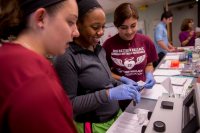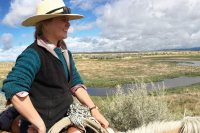
Bates College is the No. 1 producer of Fulbright Student award recipients among U.S. liberal arts colleges in 2017–18, The Chronicle of Higher Education has announced.
Bates tops the list after several years of increasing awards, from six Fulbrights in 2012–13 to this year’s 23.
Sponsored by the U.S. Department of State, the Fulbright is the U.S. government’s flagship international educational exchange program.
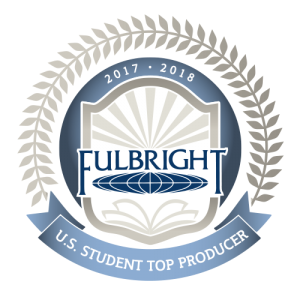 “We are honored to be recognized by the Fulbright Program and proud of what it signals — that our students graduate from Bates prepared to contribute on a global stage,” said Bates President Clayton Spencer. “Two-thirds of our students study abroad, they do community engaged work at more than twice the national average, and they work closely with faculty to develop skills in language, cultural studies, and an understanding of world affairs.”
“We are honored to be recognized by the Fulbright Program and proud of what it signals — that our students graduate from Bates prepared to contribute on a global stage,” said Bates President Clayton Spencer. “Two-thirds of our students study abroad, they do community engaged work at more than twice the national average, and they work closely with faculty to develop skills in language, cultural studies, and an understanding of world affairs.”
She added, “I am thrilled for our students, grateful for the leadership of the program on our campus, and deeply appreciative of the generosity of our faculty and staff in helping our students prepare for these important opportunities.”
The 23 current Bates Fulbright Student recipients are now engaged in multi-month research and teaching experiences in 18 countries, as near as Canada and as distant as Thailand.
Five factors drive success
Robert Strong, director of graduate fellowships for Bates, points to five key factors that make Bates’ youngest graduates uniquely prepared to be teachers, scholars, and cultural ambassadors around the world.
Study Abroad
Wide-ranging study-abroad opportunities, enjoyed by 79 percent of graduates, help students develop independence and global awareness.
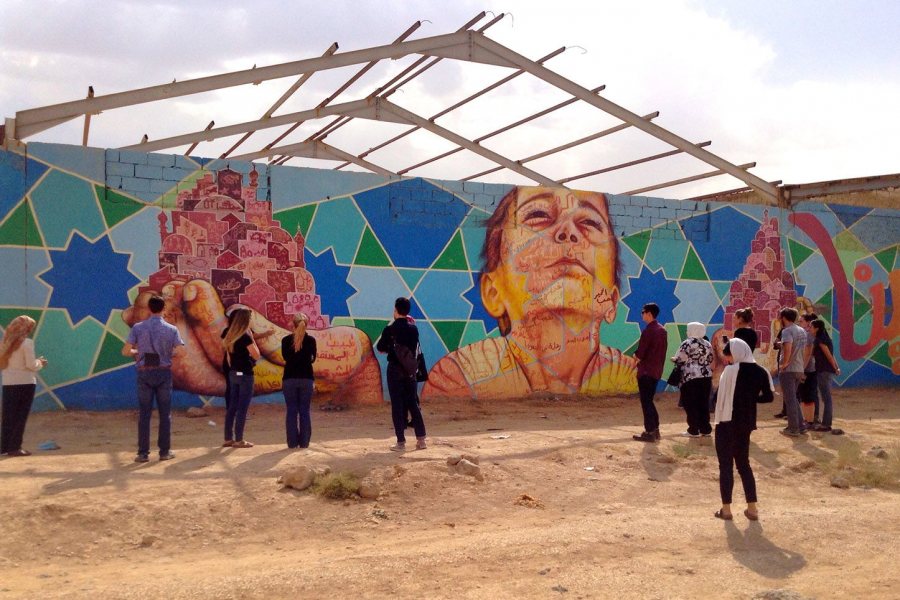
Taken during her SIT International Honors Program, this photograph by Alicia Rabideau ’17 shows the Za’atari Syrian Refugee Camp in northern Jordan, just 13 kilometers from the Syrian border. Created by Syrian youth, this painting is covered in writing. Translated from Arabic, it reads: “A lot of my loves are gone, so peace be on you, Earth…I want to be a hero…I want to be a teacher of generations…I want good for all people.”
Community-engaged learning
Myriad opportunities through the college’s Harward Center for Community Partnerships, including significant teaching field experiences through the Department of Education, bolster students’ Fulbright chances and empower them to talk about their community engagement in Lewiston-Auburn with depth and nuance.
“The curricular integration of community-engaged learning, including the practices of reflection, positions students to articulate their experiences in a sophisticated way, but not in a service-tourism way,” Strong says.
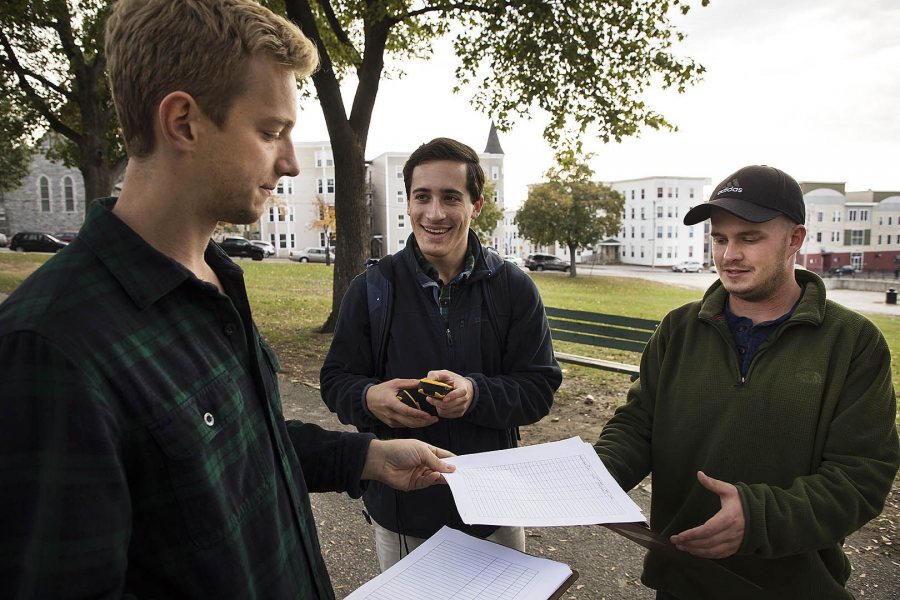
Noah Morasch ’18, Dacota Griffin ’18, and Joe Tulip ’18 map amenities such as sidewalks and green spaces in and around Lewiston’s Kennedy Park, work that will help inform downtown improvement projects. The community-engaged research project is part of a capstone course for environmental studies majors. “We’re weaving together fieldwork, the way in which they’re thinking about activism, and the scholarly world,” said Professor of Environmental Studies Holly Ewing. (Theophil Syslo/Bates College)
Senior Thesis
Bates’ rich senior thesis tradition highlights grads’ advanced and focused thinking.
“Our seniors are capable of crafting fairly advanced and focused research agendas and goals for their senior theses and graduate fellowship applications,” Strong says.
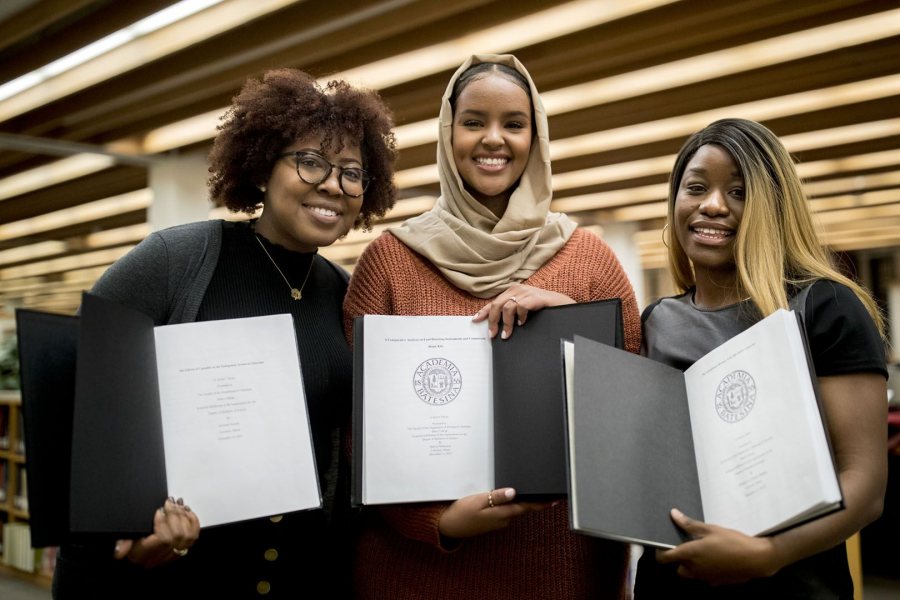
Celebrating their completed senior theses in December are, from left, Kenyata Venson ’18 of Memphis, Tenn.; Rakiya Mohamed ’18 of Auburn, Maine; and Raegine Clouden Mallet ’18 of Brooklyn, N.Y. The three theses examined, respectively, the effect of cannabis on glaucoma; commercial lead detecting kits; and the efficiency of a process involving messenger RNA. (Phyllis Graber Jensen/Bates College)
Intercultural Exchanges
Students experience productive, intense, and enriching cultural exchanges — an expectation of the Fulbright program — during study abroad and also among Lewiston-Auburn’s diverse community, which incorporates new residents from African nations.
“A student who engages with the immigrant community is stepping right into the experience of people who are struggling — and succeeding — in a new culture in challenging and rewarding ways,” Strong says.
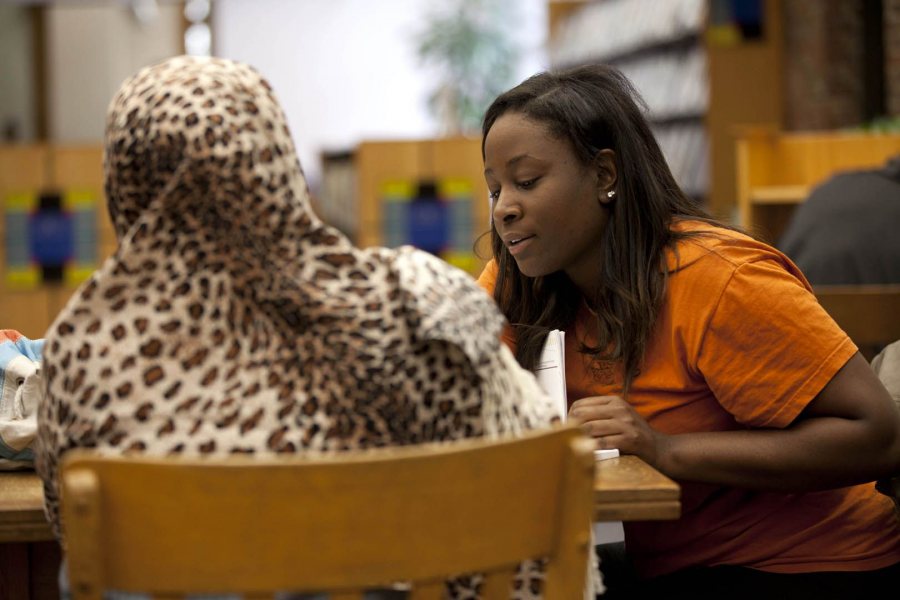
In 2013, Bates student Mary Osborne, a volunteer for the Maine Immigrant and Refugee Services, tutors a woman in English on the second floor of the Lewiston Public Library. (Phyllis Graber Jensen/Bates College)
One-on-one Mentoring
Generous, one-on-one mentoring positions each student to realize the emancipating potential of a liberal arts education.
“The committee structure and interview structures we have for graduate fellowships are intensive,” Strong says. “Our faculty and staff contribute immensely to our fellowship programs. This is Bates: When we think of a good idea for helping students, people are on board.”
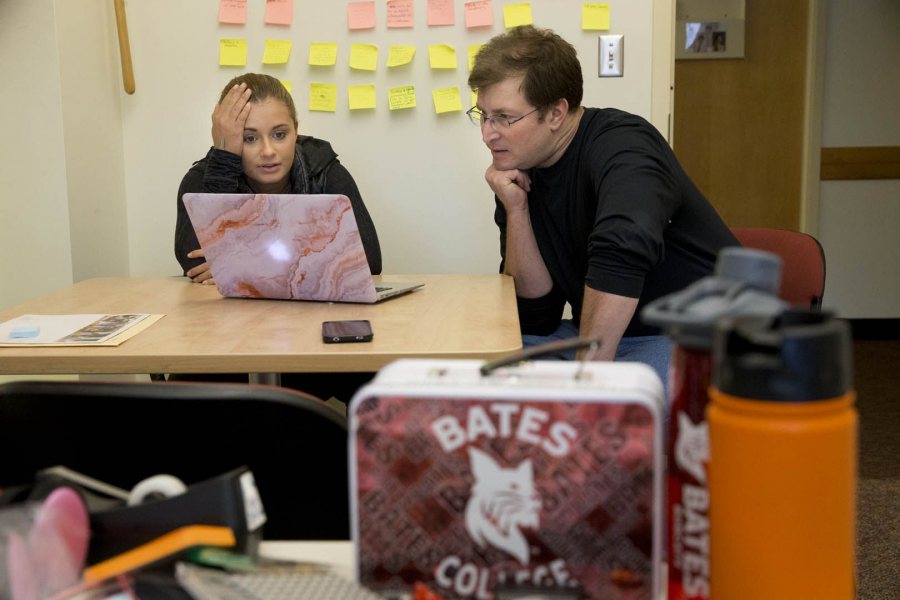
Matthew Jadud, who holds the Colony Family Professorship in Digital and Computational Studies, talks with junior Maisie Silverman of Brunswick, Maine, about her potential senior thesis topic in his Pettengill Hall office. (Phyllis Graber Jensen/Bates College)
And the Fulbrights, in turn, factor into Bates graduates’ success as they enter graduate programs, accept corporate and nonprofit jobs, or embark on other service projects.
Now a student at Dartmouth’s Geisel School of Medicine, Patrick Tolosky ’15 spent a year as a Fulbright English Teaching Assistant in Madrid, Spain.
“It’s really relevant to going into medicine.”
He organized conversation practice with small groups of middle and high school students. The discussions were deep and wide-ranging, he says, allowing him to get to know the students and help them make connections between various subjects.
His Fulbright, coupled with his Bates education, taught him the importance of listening and of recognizing others’ opinions and experiences as valid — qualities that will make him a better doctor.
“It’s really relevant to going into medicine,” he says. “Being a good clinician means being able to listen to people’s stories and hear what they’re saying.”
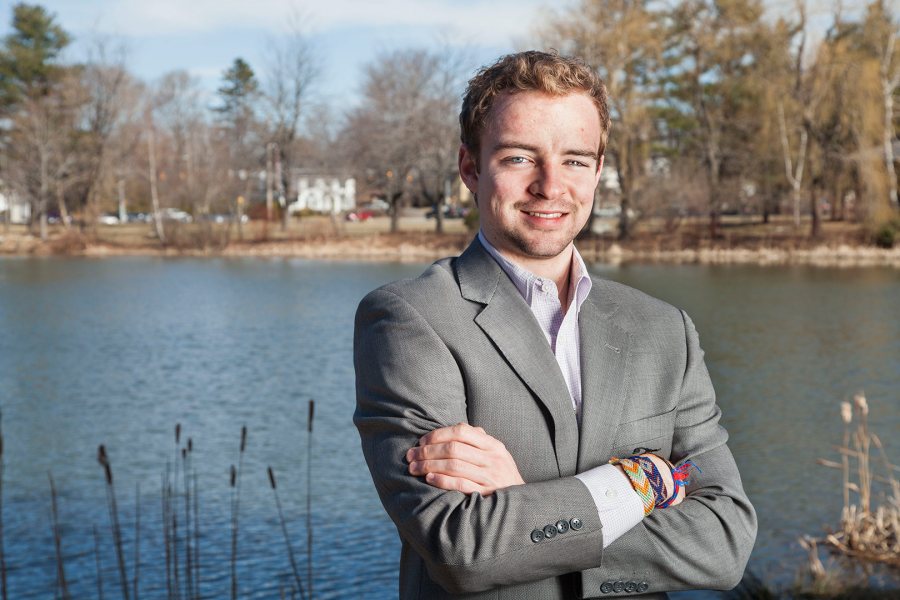
For Patrick Tolosky ’15, his Bates education coupled with a Fulbright year helped teach him “the importance of listening and of recognizing others’ opinions and experiences as valid.” (Josh Kuckens/Bates College)
A Spanish major and philosophy minor, Tolosky says that his Bates education expanded how he thinks, giving him a “strong interdisciplinary lens.”
“Bates makes it really easy to not get stuck in an isolated group while you’re studying,” he says. “It’s cool to see how people approach an issue or discussion or a certain topic in a totally different way based on what their interests are.”
After the Fulbright
Bates’ Fulbright Student award recipients go on to do a range of activities, from med school to corporate recruiting to service years. Take a look at some of the post-Fulbright destinations.
| Doctoral candidate in English, University of Strathclyde, Scotland |
| Graduate student in architecture, UMass Amherst |
| Tech policy analyst, National Journal |
| Graduate student, Stanford University |
| Copywriter, Czech Republic |
| Master’s candidate in law and diplomacy, Tufts University |
| Director of policy and advocacy, World Learning |
| M.B.A. candidate, MIT |
| Teach for America |
| Lab assistant in geochemistry |
| Master candidate in public humanities, Brown University |
| AmeriCorps |
| Fulbright ETA mentor, Brazil |
| Outreach coordinator, Natural Resources Council of Maine |
| Legislative intern with U.S. Sen. Angus King |
